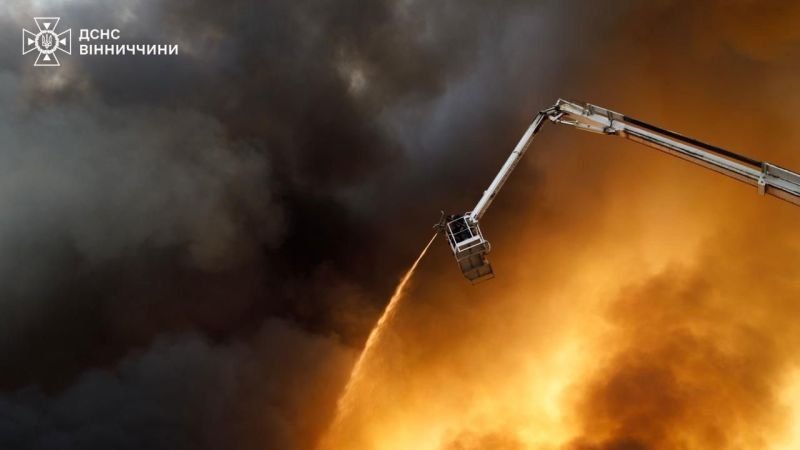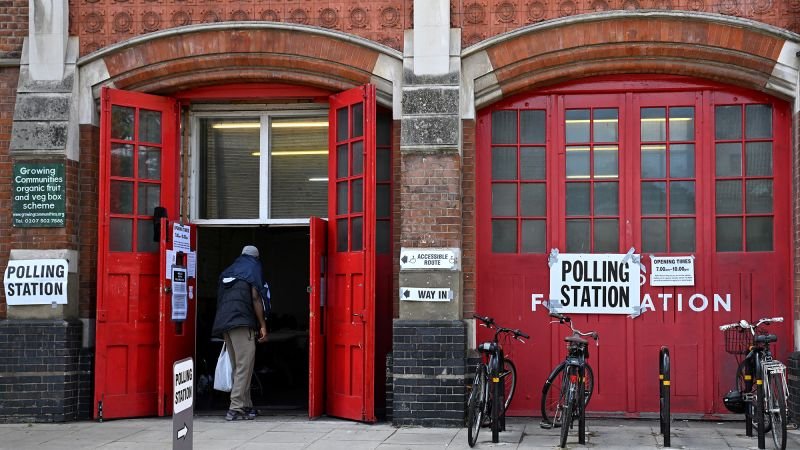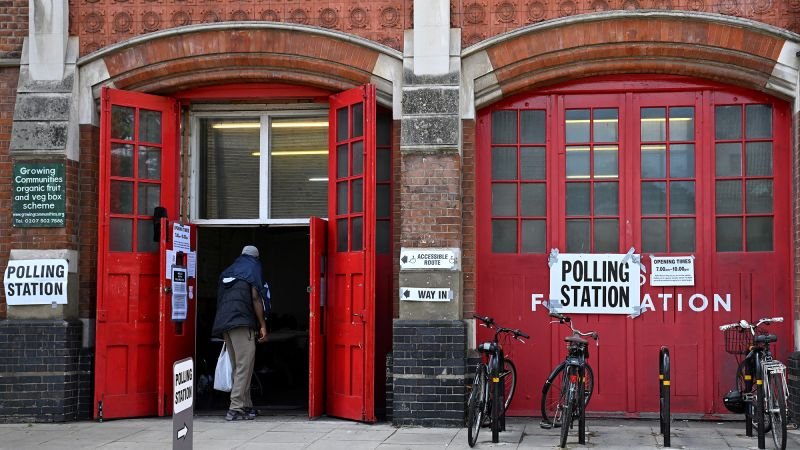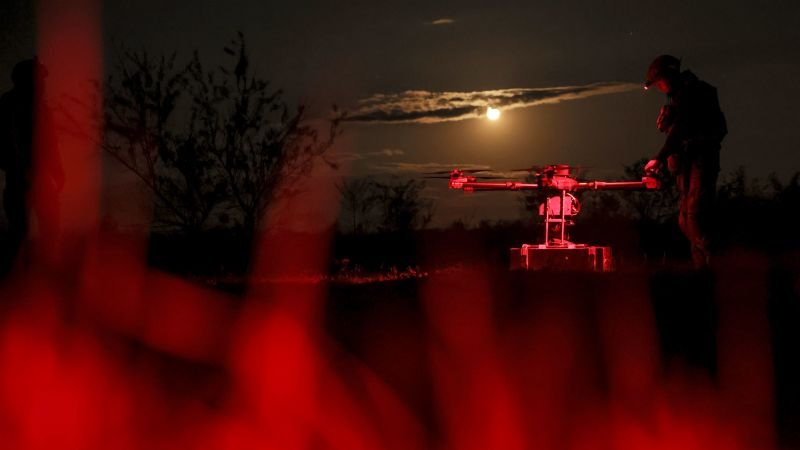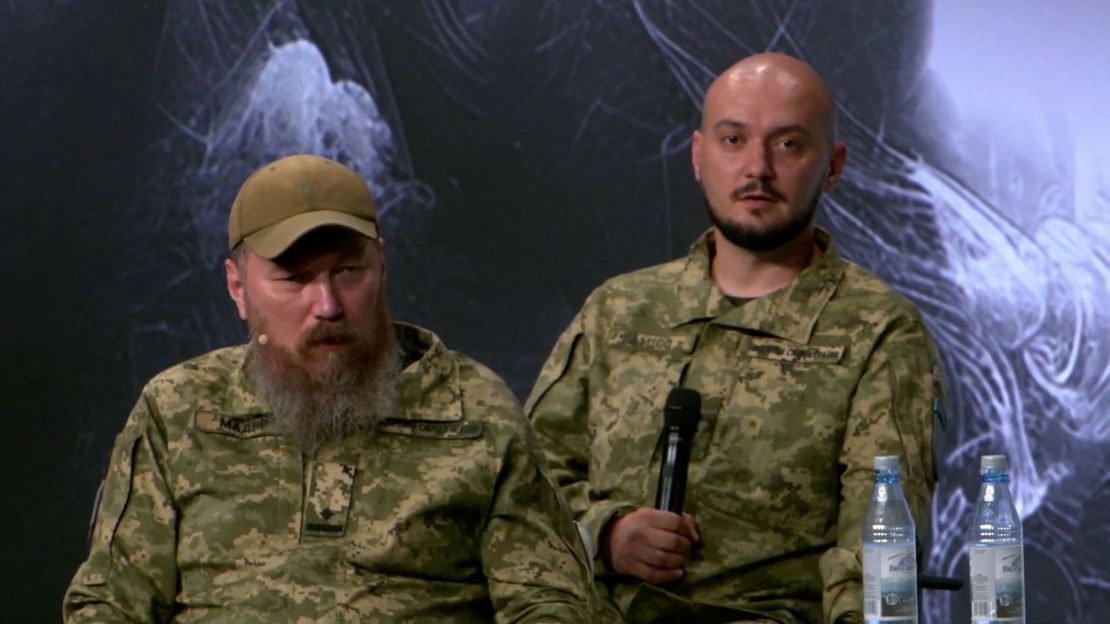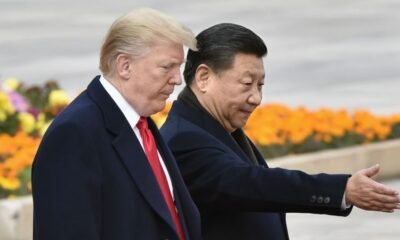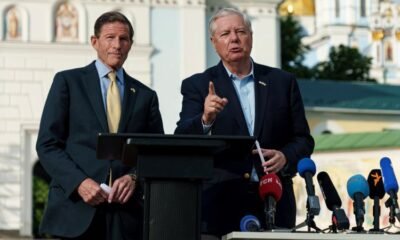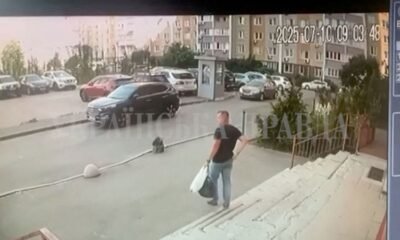CNN
—
Russia sent hundreds of drones toward Ukraine overnight into Wednesday, with four key regions coming under heavy attack and President Volodymyr Zelensky’s hometown facing “massive” bombardment, officials said.
The raid, involving 400 long-range drones and one missile, was the largest this week according to Ukrainian Air Force numbers.
Multiple cities – Zelensky’s hometown Kryvyi Rih, Kharkiv and Vinnytsia – and parts of the Odesa region suffered the heaviest bombardment. The air force said 345 of the drones were either intercepted or disabled.
Kryvyi Rih, in central Ukraine, faced “the most massive attack… since the beginning of the war,” said the head of the city’s military administration, Oleksandr Vilkul, adding that it involved a ballistic missile and 28 drones. The onslaught sparked several fires and left parts of the city without electricity and water, he added.
Zelensky said Russia had targeted energy infrastructure in the city and that 15 people had been wounded there.
“Russia is not changing its strategy – and to counter this terror effectively, we need to systematically strengthen our defenses: more air defense systems, more interceptors, and more determination,” Zelensky said in a post on X.
Ihor Terekhov, the mayor of the eastern city of Kharkiv, said his city was struck 16 times in just 14 minutes during the assault.
In Vinnytsia, southwest of Kyiv, eight people were injured and two infrastructure facilities caught fire during attacks.
Zelensky said response efforts are still underway in some of the regions targeted overnight.
Three deaths were recorded in Ukraine – one from shelling in the Sumy region and two in Kharkiv – over the previous 24 hours, with 38 people wounded, according to officials.
Russia’s latest large-scale wave of attacks on Ukraine comes days after a policy shift from the US administration, and as President Donald Trump grows increasingly frustrated with his Russian counterpart Vladimir Putin.
Trump announced on Monday that Ukraine will receive Patriot missile systems via NATO as part of a new package of US weaponry, and threatened “secondary tariffs” on other countries that buy Russian oil, signaling an economically punitive stance towards Moscow.
Once complimentary of Putin, Trump appeared angry that his overtures on ending the war have been mostly ignored in Moscow.
“My conversations with him are very pleasant, and then the missiles go off at night,” Trump said, even as he denied falling into a trap set for his predecessors: “He fooled Clinton, Bush, Obama, Biden – he didn’t fool me.”
Kremlin spokesperson Dmitry Peskov said Tuesday that Trump’s threat of sanctions is “very serious.”
“The statements of the US president are very serious,” Peskov told journalists on a daily conference call, claiming that Trump addressed Putin “personally” in his announcement.
“We certainly need time to analyze what was said in Washington. And if and when President Putin deems it necessary, he will definitely comment on it,” Peskov continued.
“For now, one thing can be said for sure. It seems that such decisions, which are made in Washington, and in NATO countries, and directly in Brussels, are perceived by the Ukrainian side not as a signal for peace, but as a signal to continue the conflict,” the spokesperson said.
Meanwhile, a number of European foreign ministers welcomed Trump’s Monday announcement.
“In order to have peace, we need to support Ukraine, and we need to put the pressure on Russia,” Kaja Kallas, the EU’s foreign affairs chief, said as she arrived at a meeting of European Union foreign ministers in Brussels on Tuesday.
“I also hope that Americans will move also with their sanctions package or tariffs, so that pressure is on Russia to really stop this war,” Kallas added.

